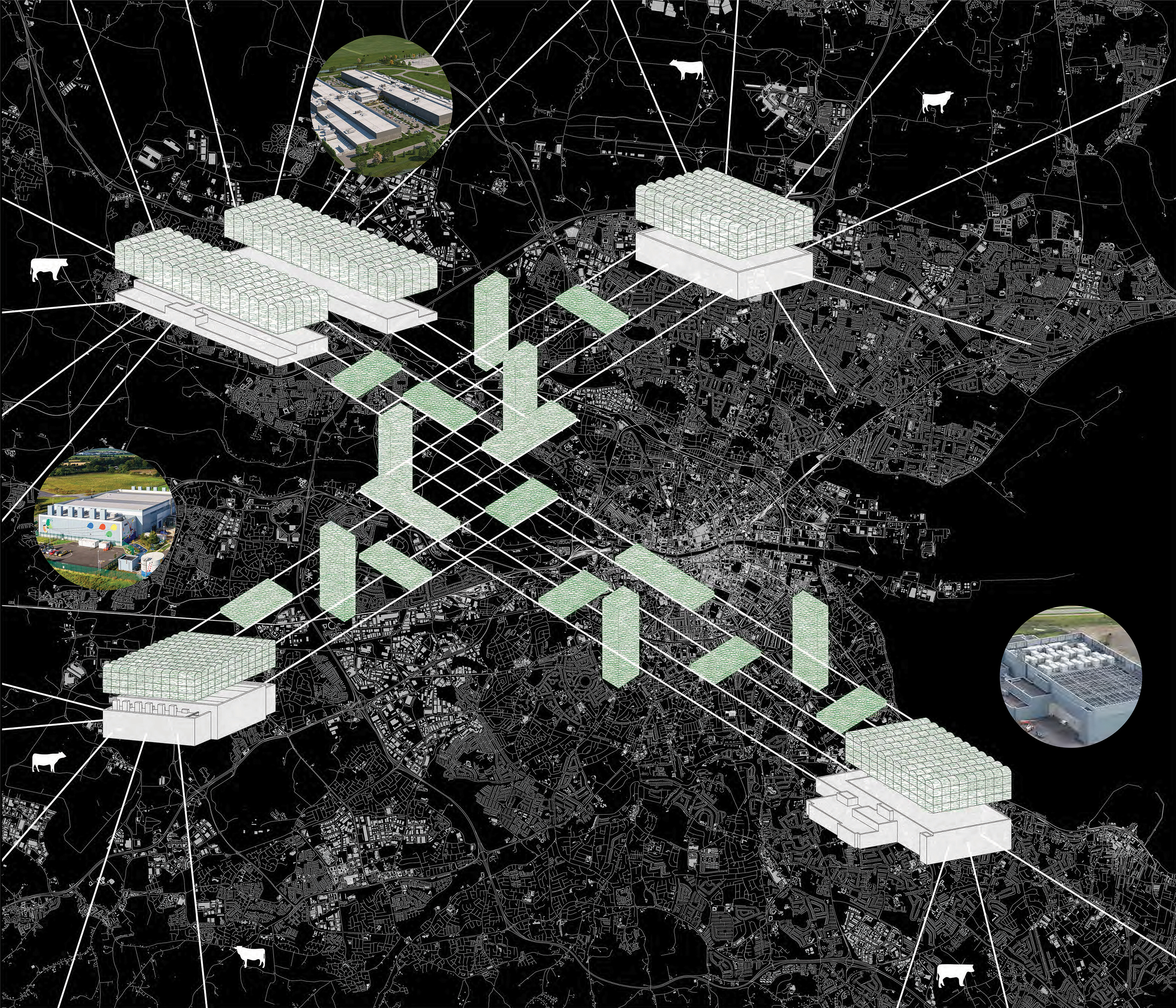Dublin is currently one of the largest data clusters in Europe with 47 data service farms in operation. The project aims to utilize the vast amount of heat currently expelled into the atmosphere (incoming cold air is used to cool the servers and the warm exhaust is then released) for the production of food, to not only solve the exhaust problem, but also to offer a more sustainable approach to agriculture in the country. Ireland has the third highest emissions rate of any European country, a third of which comes from the agricultural sector. The proposal understands “industrial symbiosis” as an environmental strategy by integrating data and food production systems, and more significantly, as a design tool to envision the future planning of a regional territory.
A yearlong research and design seminar and studio at the University of Illinois at Chicago (UIC) conducted by Clare Lyster will apply scientific and geospatial research of greenhouse technologies and automated agriculture toward the projection of a series of future speculations that combine food production with data storage to generate new multiscalar spatial configurations for ex-urban landscapes.
Final products will include a research booklet, design projects, a series of seven-minute movies, models, and an exhibition that in combination explain how “emails grow food.”






